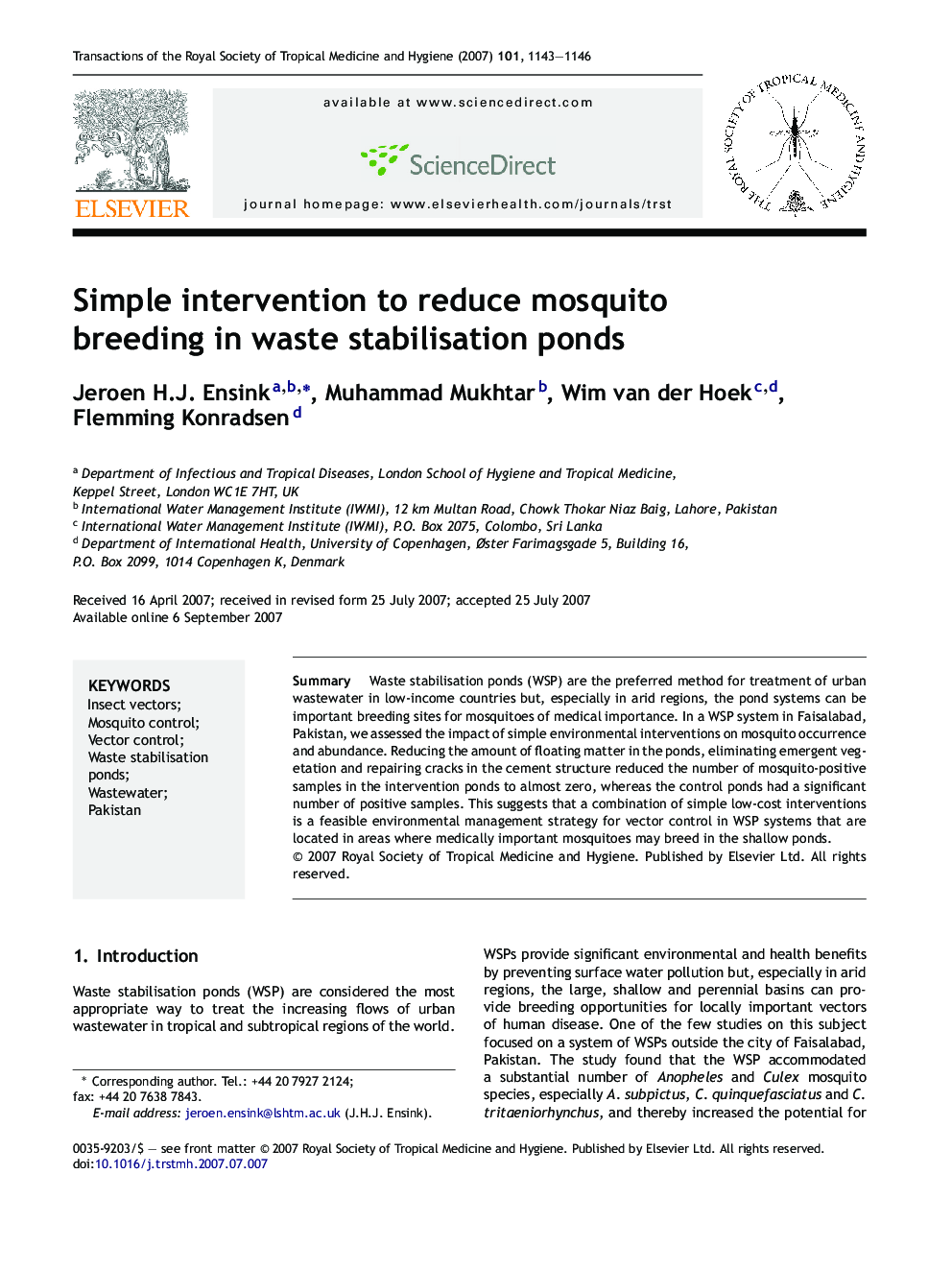| Article ID | Journal | Published Year | Pages | File Type |
|---|---|---|---|---|
| 3421000 | Transactions of the Royal Society of Tropical Medicine and Hygiene | 2007 | 4 Pages |
Abstract
Waste stabilisation ponds (WSP) are the preferred method for treatment of urban wastewater in low-income countries but, especially in arid regions, the pond systems can be important breeding sites for mosquitoes of medical importance. In a WSP system in Faisalabad, Pakistan, we assessed the impact of simple environmental interventions on mosquito occurrence and abundance. Reducing the amount of floating matter in the ponds, eliminating emergent vegetation and repairing cracks in the cement structure reduced the number of mosquito-positive samples in the intervention ponds to almost zero, whereas the control ponds had a significant number of positive samples. This suggests that a combination of simple low-cost interventions is a feasible environmental management strategy for vector control in WSP systems that are located in areas where medically important mosquitoes may breed in the shallow ponds.
Related Topics
Life Sciences
Immunology and Microbiology
Applied Microbiology and Biotechnology
Authors
Jeroen H.J. Ensink, Muhammad Mukhtar, Wim van der Hoek, Flemming Konradsen,
